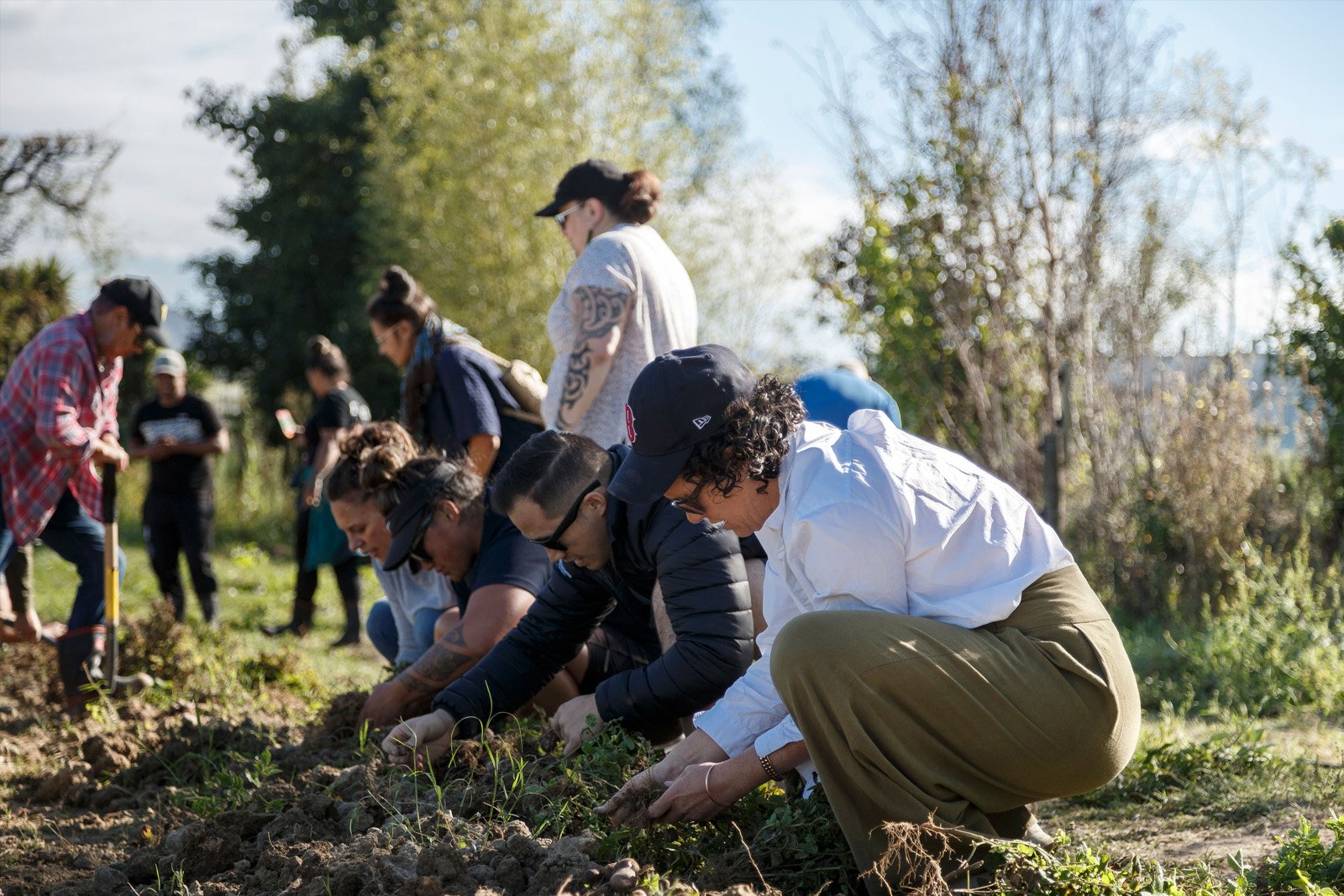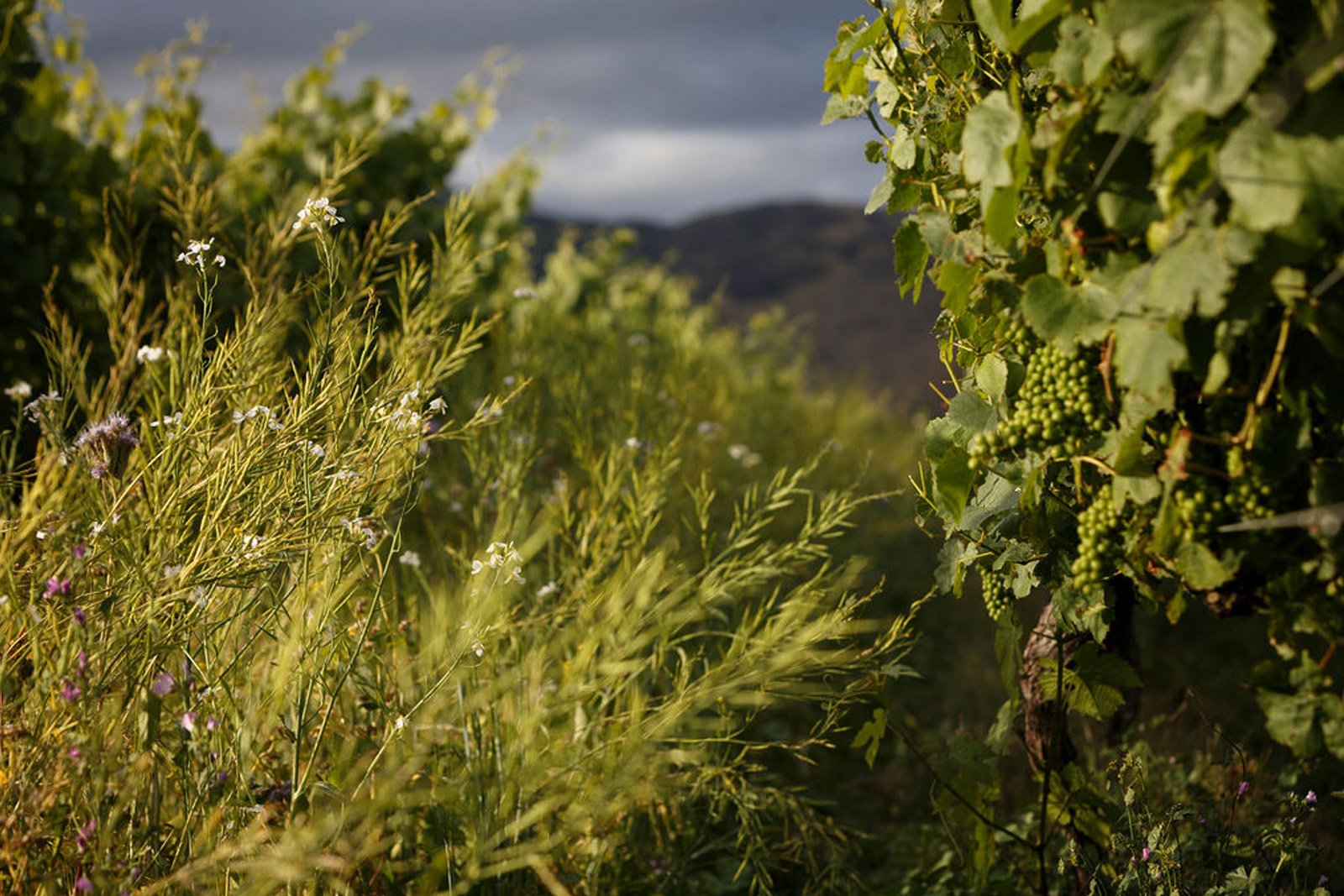Wakatū is committed to transitioning from conventional methods to tikanga-led farming principles and practices across all our activities on land by 2040.
Our practices will validate Māori customary knowledge and be grounded in Māori cultural values – respecting and protecting the integrity of this knowledge is always of the utmost importance to us.
Te toto o te tangata he kai, te oranga o te tangata, he whenua, he oneone.
While food provides the blood in our veins, our health is drawn from the land and soil.
Karioi – our indigenous crops project
Karioi aims to reconnect whānau of Wakatū to their whenua by growing indigenous crops through tikanga-led, regenerative principles and practices. This project brings our whānau together to share and learn valuable mātauranga and help us as whānau to move towards more sustainable practices across our businesses.
Karioi started in 2020 as a pilot project and is in its fourth growing season.
Native planting and
restoration
We are committed to planting native plants and trees on Wakatū whenua to increase biodiversity, revitalise waterways and enable habitat restoration.
We’ve planted thousands of native trees on Wakatū whenua; at our Whenua Matua vineyard; at Te Māra o Puanga Kairau, our māra in Motueka, and on the whenua at Mārahau. We also have a seedling programme with a local nursery at our Whenua Awa Vineyard in the Awatere Valley.
Kono, our food and beverage company has proudly
embraced Whenua Ora, implementing the programme’s
initiatives throughout the business.
Transition to regenerative practices
On our vineyards
The team at our Whenua Awa vineyard in the Awatere Valley are in year three of a five-year transition to reduce the use of synthetic chemicals on the whenua, improve soil and plant health, and increase the biodiversity.
To achieve these changes to date, the team has grown and planted thousands of native plants and planted multi-species cover crops between and under the vines.
We graze sheep at Whenua Awa during May – September, to keep rows tidy, reduce the number of passes we make with a tractor, and help build soil health by adding the sheep’s own natural fertiliser!
We are also conducting trials at our winery vineyard with direct applications of grape marc under vines rather than composting and spreading. Soil sampling has shown an increase in potassium base saturation and organic matter which in part are attributable to the grape marc.
At Kono Horticulture
Our Kono Horticulture team are also in year three of a ten-year transition to reduce the use of synthetic chemicals on the whenua, introducing diverse cover crops, and healthy stimulants such as compost to improve ecosystem health and function.
Our journey to organic certification
Whenua Awa vineyard
We are in year one of our journey to organic certification, committing to the BioGro three-year organic certification programme for 15 ha of grapes.
Organic certification is another step at our Whenua Awa vineyard of reducing and eliminating chemicals used on the whenua, improving soil and plant health, water infiltration, and improving the wellbeing of our kaimahi while producing quality fruit.
Videos
Whenua Awa Seedling Project







